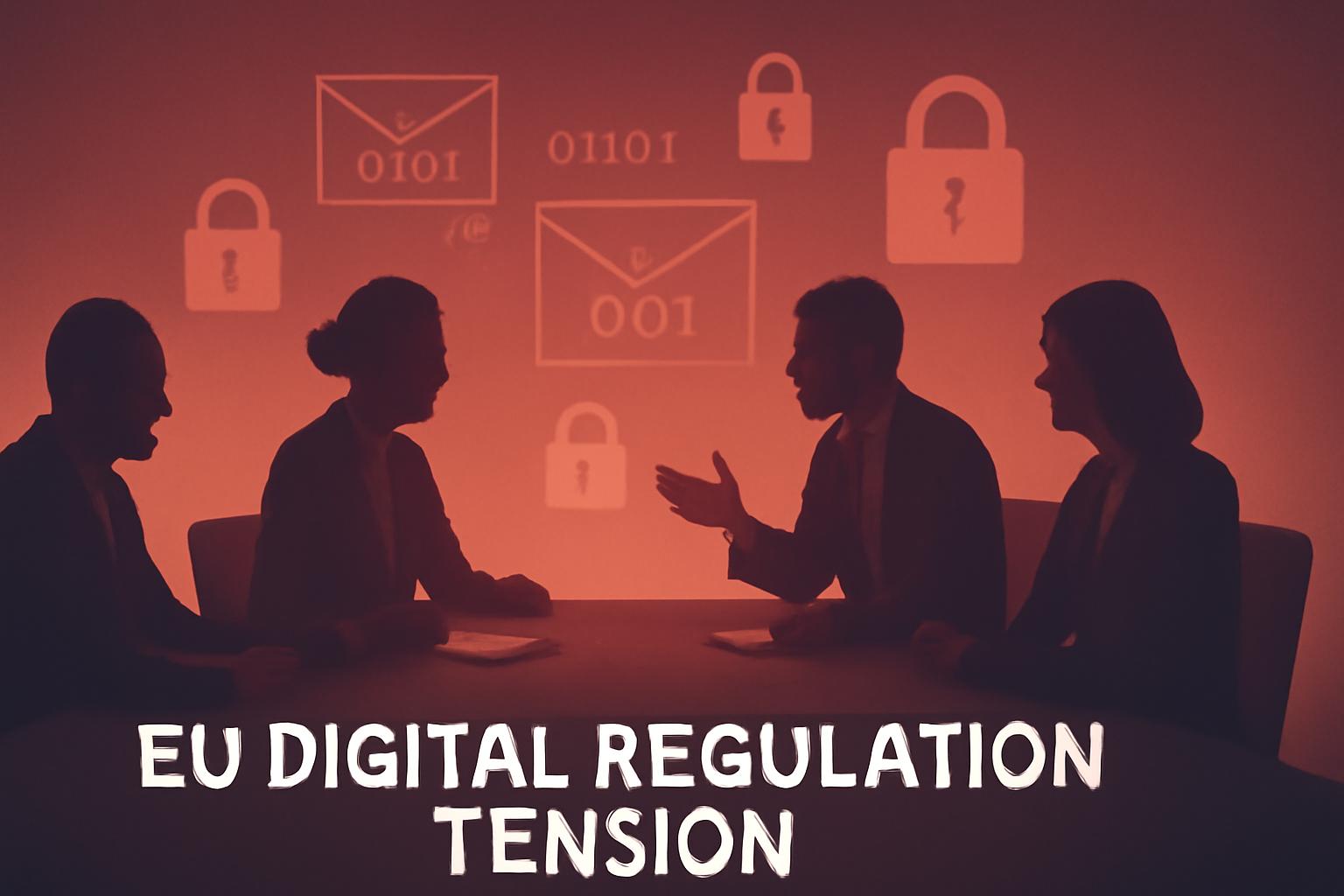EU Chat Control Law Awaits Germany’s Key Decision
The European Union is approaching a decisive vote on the contentious “Chat Control” regulation, officially titled the Regulation to Prevent and Combat Child Sexual Abuse (CSA). The legislation, championed by Denmark during its presidency of the EU Council, proposes mandatory pre-encryption message screening by platforms such as Telegram, WhatsApp, and Signal to detect and prevent the spread of child sexual abuse material (CSAM).
Despite support from legislators representing 15 EU member states, these countries collectively fall short of the 65% population threshold needed to secure a qualified majority. Germany’s position, representing over 83 million citizens, is thus crucial. Should Germany endorse the regulation, the supporting bloc would surpass the required 65%, reaching approximately 71% of the EU population. Conversely, if Germany opposes or remains undecided, the bill’s prospects dim significantly.
Privacy and Security Concerns Stir Debate
Introduced in 2022 by then-European Commissioner Ylva Johansson, the regulation aims to combat the distribution of CSAM by requiring messaging services to scan private communications before encryption. However, this approach has been met with widespread criticism from privacy advocates, civil society, and some European parliamentarians.
Opposition within Germany spans the political spectrum. Members of the European Parliament (MEPs) from Bündnis 90/Die Grünen and Alternative für Deutschland have expressed clear resistance, while many from the ruling Social Democrats, Christian Democrats, and the Social Democratic Union of Bavaria remain undecided. Concerns focus on potential erosion of privacy, the risk of surveillance overreach, and the undermining of encryption integrity.
Germany already enforces legislation permitting law enforcement to bypass encryption under certain conditions, including intercepting communications without established suspicion of a crime. Privacy advocate Jikra Knesl notes that similar measures to Chat Control effectively exist in Germany, with companies like Meta sharing reports with authorities. Expanding such policies EU-wide could expose millions of innocent users to unwarranted surveillance and legal intrusion.
Experts Warn of Technical and Legal Challenges
Critics argue that mandatory scanning before encryption introduces vulnerabilities exploitable by cybercriminals, hostile states, and terrorist groups. The FZI Research Center for Information Technology and over 400 scientists have highlighted the high rates of false positives and negatives inherent in current detection technologies, which could overwhelm law enforcement with inaccurate alerts.
Sascha Mann of Volt Europa emphasized that Chat Control’s volume of monitored content risks diverting resources from effective investigations. Instead, experts advocate for alternative strategies such as prompt removal of confirmed CSAM and bolstered law enforcement capacities.
Civil Society Mobilizes Ahead of October Vote
With the EU Council scheduled to vote on October 14, advocacy groups continue to campaign against the regulation, emphasizing fundamental rights and democratic principles. Emmanouil Fragkos, an MEP from the Greek Solution party, has raised parliamentary questions regarding the legislation’s impact on EU citizens’ rights.
The outcome will significantly influence the future of digital privacy and encryption standards across Europe. Germany’s decision remains the fulcrum on which the legislation’s success or failure balances.
FinOracleAI — Market View
The potential approval of the EU’s Chat Control law represents a significant regulatory shift impacting encrypted messaging platforms. Germany’s support is critical for the bill to pass, signaling increased regulatory scrutiny on privacy and encryption technologies in Europe.
While aimed at combating child sexual abuse, the law raises concerns about privacy erosion and technical feasibility, potentially affecting user trust and platform operations. Market participants should monitor Germany’s final stance and ensuing legislative developments closely, as these will shape regulatory risk and compliance costs for messaging service providers.
Impact: negative













